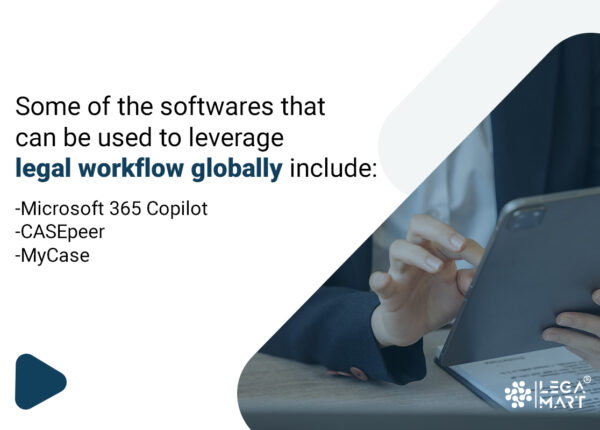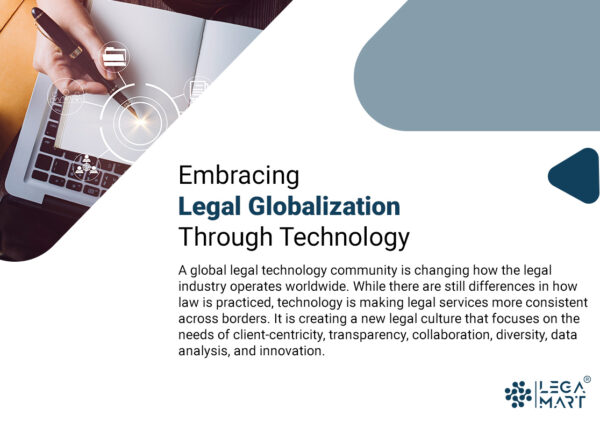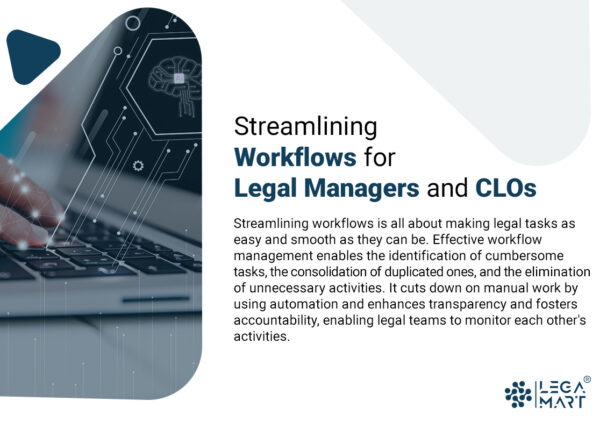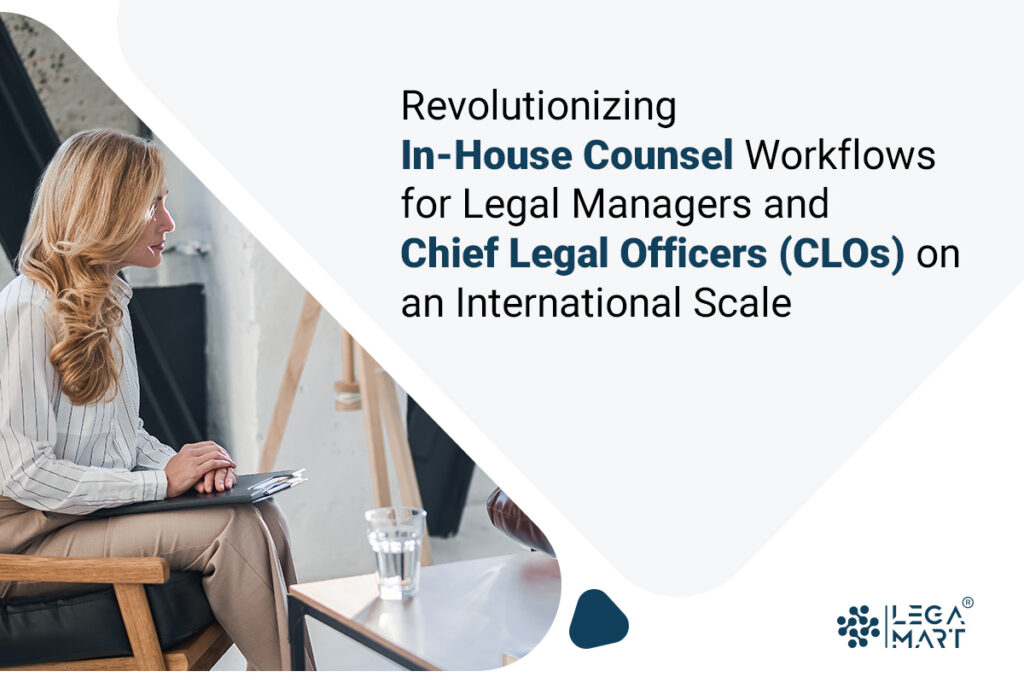The podcast “Unlock the full legal potential of Microsoft Copilot” gathered industry leaders from Microsoft, iManage, and Henchman to explore the transformative role of AI in the legal profession. The podcast highlights how the transformative promise of AI for the legal profession is multifaceted. Firstly, it involves the critical task of discerning the practical applications of AI, within law firms and emerging startups. This entails identifying the most suitable use cases for AI, whether it be automating repetitive tasks or enhancing decision-making processes. Concurrently, there’s a noticeable trend of law firms engaging in extensive experimentation with various technologies.
A notable example of this transformative potential lies in the comparison with Fintech, which aggregates vast amounts of numerical data. Similarly, language models enable access to extensive textual data within the legal industry, including contracts and emails. Law firms are increasingly recognizing the wealth of data at their disposal, realizing its potential to drive innovation, derive insights, and ultimately add value to both the organization and its clients. This realization has spurred a newfound willingness among legal industry stakeholders, traditionally considered conservative, to embrace technology.
iManage for example has the latest private repository of legal content globally, hosting billions of documents on their cloud platform. This platform is entrusted by law firms and legal departments to securely store, protect, and manage their data. On the other hand, Henchman’s primary mission revolves around empowering legal professionals in drafting and negotiating complex contracts. Collaborating closely with iManage, Henchman facilitates access to vital information for lawyers. Moreover, it has developed an automated closed library tailored specifically for legal practitioners.
This podcast serves as a crucial resource for legal managers and CLOs seeking to revolutionize in-house counsel workflows by exploring the transformative role of AI in the legal profession and providing practical insights on its effective utilization to enhance legal operations and efficiency.
Introduction
There is a growing expectation for in house counsel to deliver responsive and strategic support to businesses. However, outdated workflows and cumbersome processes often hinder their ability to maximize value. Recognizing these challenges, forward-thinking legal departments are turning to technology to revolutionize their workflows, paving the way for efficiency and strategic focus, especially on an international scale.
The increasing adoption of legal technology has played a significant role in the globalization of legal practice. This globalization has spurred a demand for cost-effective legal services, leading organizations to explore alternatives to traditional in-house legal managers, CLOs, and legal teams.
For instance, the podcast “Unlock the full legal potential of Microsoft Copilot” highlights how the emergence of Generative Artificial Intelligence (GAI) such as Copilot has transformed legal operations, offering substantial benefits to legal leaders, legal teams, chief legal officers and general counsel. By accelerating various tasks within workflows, such as content creation, due diligence, and contract management, GAI enhances productivity and efficiency. Therefore, with the right technology solution, legal managers, general counsel and CLOs can overhaul their workflows and enhance collaboration both internally and externally. This article therefore explores innovative solutions aimed at transforming the workflows of in-house counsel for legal managers and chief legal officers to operate efficiently on a global scale.
What are Legal Workflows?

Legal workflows encompass the procedures involved in managing legal matters by combining processes and automation through taking a defined process, incorporating specific inputs and outputs, and employing automation to execute tasks automatically. Here are examples of legal workflows:
- Legal Document Automation: This entails automated solutions integrated into legal practice management software, enabling users to access remote desktop sessions across multiple devices from their home office environment, streamlining tasks.
- Task workflow: Legal leaders and chief legal officers often need to delegate tasks among various team members, a process that can be streamlined through the use of calendaring workflows within practice management software.
- Case Management: This involves the complete management of cases from initiation to conclusion, including scheduling appointments, responding to client communications, preparing documents and organizing all pertinent information into a single accessible location.
- Data security: The legal team needs to prevent the accidental or intentional leakage of confidential information by ensuring that all data remains within its own network, inaccessible to unauthorized individuals.
- Litigation Support: This involves tasks like researching case law, drafting briefs based on findings, and filing motions with judges during hearings, particularly in the discovery phase where evidence exchange occurs between parties.
Technology as a Catalyst in Revolutionizing Legal Workflows Globally
The globalization of the legal market has created fresh opportunities for legal leaders and CLOs to engage in cross-border legal practice, collaborate with foreign entities, firms, and cater to international clientele. This globalization requires a reevaluation of legal practice approaches, with an increased emphasis on embracing technological advancements among legal leaders and CLOs.
Technology has played a pivotal role in reshaping the landscape of the legal profession, driven largely by the forces of globalization. The integration of technology into legal practices, encompassing advancements such as cloud computing, artificial intelligence, online research platforms, and digital communication tools, has transformed the delivery of legal services.
An example of Radiant Law, a UK-based firm, overhauled its legal services delivery by embracing innovative strategies to leverage global talent and technology. They integrated new technologies and collaborated with freelance IT experts worldwide to develop software for streamlining legal processes, and partnered with outsourcing providers in India and South Africa.
Legal managers and chief legal officers are now harnessing these technological innovations to boost productivity, elevate service quality, and foster seamless collaboration with international clients and partners. For example, the adoption of software such as artificial intelligence (AI) for tasks like legal research, document analysis, and predictive analytics has not only streamlined processes but also enhanced accuracy.

Some of the softwares that can be used to leverage legal workflow globally include; –
- Microsoft 365 Copilot: This software utilizes advanced processing capabilities and leverages Microsoft 365 applications to interpret natural language commands, enabling automation of various tasks including content creation, data analysis, and presentation building. For instance, Microsoft 365 Copilot seamlessly integrates with commonly used Microsoft applications among legal professionals like Word, Outlook, and Teams, offering real-time intelligent support through automated tasks such as document summarization, email analysis, and document editing.
- CASEpeer: This is a legal workflow automation software developed by CasePilot, a London-based company, aiming to automate legal workflows and simplify case preparation for court proceedings. While primarily designed for law firms and legal departments, CASEpeer’s versatility extends to other sectors, including corporate environments, where it serves as an automated case management solution, facilitating document management within relevant timelines.
- MyCase: This is a legal practice management software utilized by law firms, legal departments, and various legal entities. Featuring an integrated document management system (DMS), it efficiently handles documents including contracts, drafts, and bills of lading. Being cloud-based, MyCase is accessible worldwide via web or mobile app, ensuring convenient access anytime, anywhere.
Embracing Legal Globalization Through Technology

A global legal technology community is changing how the legal industry operates worldwide. While there are still differences in how law is practiced, technology is making legal services more consistent across borders. It is creating a new legal culture that focuses on the needs of client-centricity, transparency, collaboration, diversity, data analysis, and innovation. Legal managers and chief legal officers are now witnessing key trends that facilitate the development and global sale of legal technology products. These trends include:
Digitalization of Legal Precedents:
There is a rapid digitalization of legal precedents, making them more accessible and analyzable. Legal tech products now offer databases of case law from around the world, aiding lawyers globally. The technology used to make case law searchable in one region can be replicated in new regions as more legal precedents are digitized. This not only enhances the quality of legal research but also reinforces the use of international technology standards in producing and disseminating legal information.
Newly emerging technologies:
The continuous advancement in technology, including machine learning, artificial intelligence, and blockchain, is a key trend in this regard. These technologies empower the creation of advanced tools for tasks such as contract analysis, predicting legal outcomes, and maintaining secure, transparent records. Because these technologies are not limited by geographical boundaries, the products developed using them are inherently more adaptable to international markets. The existence of these technologies presents opportunities for those who are innovative and forward-thinking. In indepth some of these technologies include:
Legal Management Software: Opt for platforms that support multiple languages and legal systems, ensuring that case management, document storage, and compliance tools are adaptable to various jurisdictions. Solutions like Matter Management systems can streamline global operations by providing a unified view of all legal matters.
AI and Machine Learning: Leverage AI for cross-border contract analysis, helping to identify jurisdiction-specific clauses and compliance requirements. AI-driven tools can also support multilingual document review and legal research, reducing the time and resources spent on these tasks.
Document Automation Tools: Instead of spending hours manually drafting documents, legal professionals now use software that can generate contracts and agreements in just minutes. These tools gather relevant data intelligently, cutting down on errors, costs, labor, and other inefficiencies associated with traditional methods.
Legal Research: Accessing a vast database of information in one place makes extensive legal research much simpler. This algorithm combines data analytics and artificial intelligence to speed up the research process. Case laws, statutes, citations, references and scholarly articles can all be accessible from a single platform.
Adoption of International Technology Standards:
The globalization of legal technology is greatly influenced by the adoption of international technology standards. These standards provide a common framework for developing technology, ensuring that products and systems are consistent, secure, and of high quality worldwide. By adhering to these universal standards, legal tech tools not only serve a global audience but also build trust and reliability, making them more likely to be widely adopted in different legal systems around the world. While it’s essential to standardize workflows for efficiency, it’s equally important to understand local differences. Creating core processes that can be adjusted to meet local requirements allows your legal department to quickly adapt to new regulations or legal environments without starting over each time.
Automating for Efficiency and Accuracy:
Automating repetitive tasks, such as document review and legal research, can significantly boost efficiency and accuracy within the legal sector. Automation technologies have emerged as powerful tools, revolutionizing how legal services are delivered and enabling legal managers and Chief Legal Officers (CLOs) to provide clients with faster, more cost-effective, and higher-quality solutions. By harnessing automation technologies, legal managers and CLOs can streamline workflows, reduce manual effort, minimize errors, and deliver superior client outcomes.
These technologies encompass a variety of tools and systems designed to automate repetitive tasks, streamline workflows, and enhance productivity. Some of the key automation technologies utilized in Legal Process Outsourcing (LPO) include:
Natural Language Processing (NLP): NLP techniques enable computers to understand and interpret human language, including text and speech. In LPO, NLP algorithms can analyze legal documents, extract key information, and generate summaries or insights, facilitating faster and more accurate decision-making.
Artificial Intelligence (AI): AI technologies, such as machine learning and natural language processing, empower computers to analyze data, make predictions, and perform tasks that traditionally required human intelligence. Legal managers and CLOs can leverage AI-powered solutions for document review, contract analysis, legal research, and predictive analytics.
Robotic Process Automation (RPA): RPA involves using software robots or “bots” to automate routine, rule-based tasks like data entry, form filling, and data extraction from documents. This frees up human resources to focus on more complex and value-added activities.
Advanced Analytics: Advanced analytics techniques, such as data mining, predictive modeling, and statistical analysis, enable organizations to derive valuable insights from large volumes of data. Generally, advanced analytics can identify trends, predict outcomes, and optimize legal strategies for Legal managers and CLOs thus enhancing the overall effectiveness of legal operations.
Cloud Computing for Global Collaboration:
Cloud-based solutions provide the scalability and flexibility necessary for international operations. They facilitate real-time collaboration and access to documents and data from anywhere in the world, which is essential for teams spread across different countries. It’s important to ensure that your chosen cloud provider adheres to the highest standards of data protection and privacy laws in all relevant jurisdictions.
Strengthen Data Security Across Borders:
Operating internationally involves navigating diverse data protection laws like GDPR in Europe or CCPA in California. Implement robust data security measures to ensure compliance with the strictest regulations applicable to your operations. This minimizes risks and safeguards sensitive information effectively.
Invest in Ongoing Learning and Development:
The legal landscape constantly evolves, especially on a global scale. Foster a culture of continuous learning and development within your team, focusing on international law, emerging legal technologies, and cross-cultural management. This not only enhances your team’s capabilities but also keeps your department agile and well-informed.
Harness Analytics for Strategic Insights:
Data analytics provides valuable insights into your department’s operations and effectiveness, particularly in managing costs and outcomes across different jurisdictions. Utilize analytics to monitor performance, identify trends, and make informed decisions aligned with both legal and business strategies.
Adopting a client-centric approach involves aligning legal strategies with the broader business goals and cultural nuances of each region where you operate. Understanding the business context and priorities in diverse markets allows for tailored legal support that is more effective and responsive.
Foster an Innovative Culture:
Encourage a culture of innovation where new ideas for enhancing workflows and addressing cross-jurisdictional challenges are embraced. Remain receptive to experimenting with new technologies and processes that can enhance efficiency and effectiveness in your legal operations.
Streamlining Workflows for Legal Managers and CLOs

Streamlining workflows is all about making legal tasks as easy and smooth as they can be. Effective workflow management enables the identification of cumbersome tasks, the consolidation of duplicated ones, and the elimination of unnecessary activities. It cuts down on manual work by using automation and enhances transparency and fosters accountability, enabling legal teams to monitor each other’s activities.
In her podcast, Electra Japonas, co-founder and CEO of The Law Boutique (TLB), delves into topics such as mindset, strategy, legal design and operations on what truly makes an optimal lawyer. In one of the episodes, titled “Streamlining the workflow of in-house lawyers” Electra discusses methods to enhance the efficiency of in-house legal teams. She explores strategies like standardizing contracts and insourcing low-risk legal tasks with James Russell-Jones, the Head of Legal at Secret Escapes.
James Russell-Jones provides invaluable insights on revolutionizing in-house counsel workflows, emphasizing the criticality of standardization, insourcing, and harnessing technology to navigate international legal complexities effectively. By implementing these approaches, legal managers and Chief Legal Officers (CLOs) can improve the operational efficiency and efficacy of their departments, facilitating organizational success in the global arena.
During a comprehensive discussion on optimizing the efficiency of in-house legal teams, James Russell-Jones, shares his insights and experiences. He explores strategies for adapting to the fast-paced and evolving needs of legal departments in rapidly expanding companies, stressing the importance for lawyers to thrive in dynamic environments. In in depth these strategies entails;
Standardizing Contracts: Russell-Jones emphasizes the importance of standardizing contracts to simplify the legal workflow. By implementing consistent contracts across different jurisdictions, legal teams can reduce the time spent on drafting, reviewing, and negotiating agreements. Clear and straightforward contracts not only speed up the process but also decrease the risk of errors.
Insourcing for Low-Risk Tasks: Another valuable approach is bringing low-risk legal tasks in-house to internal teams. Russell-Jones discusses the training of non-legal staff to handle initial legal processes, such as preliminary contract reviews and compliance checks. This tactic enables the legal department to focus their expertise on more complex matters, improving overall efficiency.
Navigating International Operations: Operating globally presents unique challenges. Russell-Jones emphasizes the importance of establishing a global legal network and leveraging technology to effectively manage these complexities. Utilizing legal management software with support for multiple currencies and languages, along with cloud-based document management and collaboration tools, can greatly enhance the workflow of international legal teams.
Adapting to Fast-Paced Environments: The discussion also addresses the mindset and strategies required for lawyers in rapidly growing tech companies. Embracing change, fostering collaboration across departments, and harnessing technology are essential for legal teams to support business growth and navigate the rapid pace of their industries.
The Impact of Innovation and Disruption on the in-house legal profession
The in-house legal profession is undergoing significant transformation due to the impact of innovation and disruption, with technology spearheading this change. Artificial intelligence and computers are revolutionizing the delivery of legal services, compelling legal teams to enhance efficiency and productivity amid the demand to accomplish more with fewer resources.
Despite initial reluctance, in-house counsel are increasingly embracing innovation and exploring novel approaches to legal service delivery. As legal teams expand, there’s a notable trend towards investing in software systems aimed at optimizing common tasks, showcasing value, and mitigating legal risks. Furthermore, advancements in artificial intelligence, particularly predictive coding, are poised to revolutionize many repetitive tasks currently undertaken by paralegals and junior lawyers.
Conclusion
Technology serves as a catalyst for digital transformation, but it goes beyond merely adopting the latest tech tools. It entails a cultural shift for legal managers and CLOs to align with clients, cultivate an agile workforce, embrace diversity, and commit to lifelong learning and constant improvement. This is how the optimal impact of legal tech is achieved. Therefore, for legal managers and CLOs operating globally, transforming in-house counsel workflows is essential for navigating the complexities of multijurisdictional cases and the global business landscape.
Furthermore, embracing technology, streamlining processes, and fostering a culture of continuous improvement and collaboration are key steps for enhancing global operations, ensuring legal excellence, and compliance across borders. This internationalized approach to legal tech not only expands opportunities for legal entrepreneurs but also ensures that the legal industry keeps pace with the rapid globalization of business and commerce.
Therefore, implementing these strategies enables legal managers and CLOs to revolutionize in-house counsel workflows, achieving unprecedented levels of efficiency, cost-effectiveness, and alignment with organizational goals. However, it’s crucial to recognize that workflow optimization is an ongoing process, requiring continual evaluation, adaptation, and a willingness to embrace innovation.




